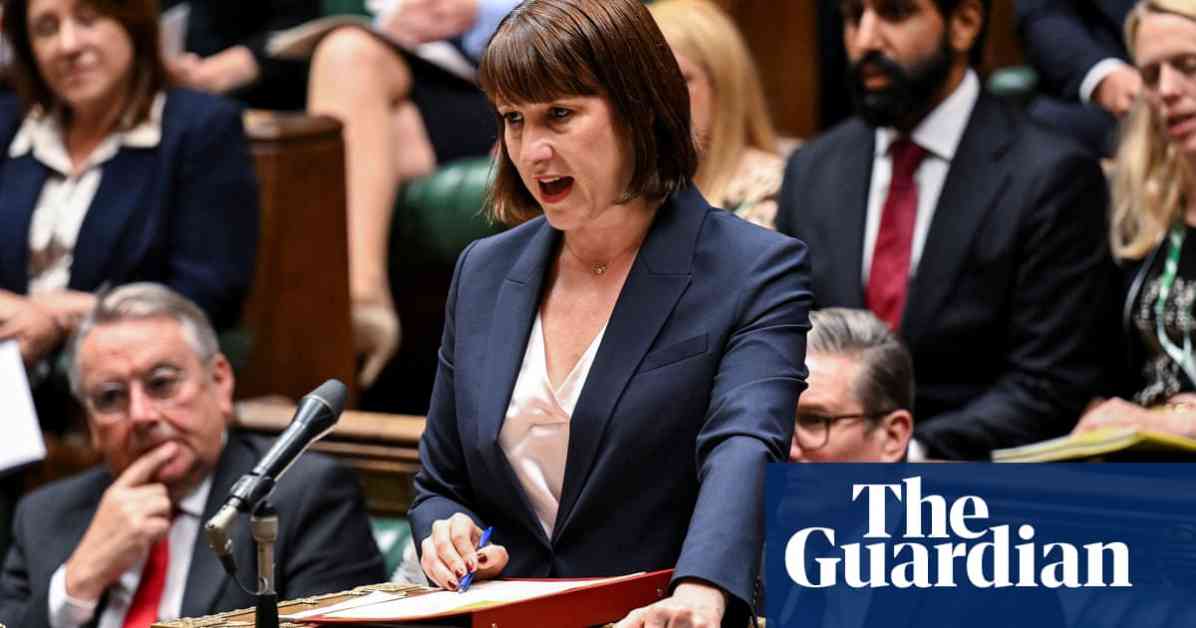Rachel Reeves, the new Chancellor of the Exchequer, is gearing up for a tough October budget that will see an increase in taxes, a reduction in spending, and a crackdown on benefits. The Treasury is expressing alarm that despite a pickup in the economy, the state of the public finances remains dire. With the latest borrowing figures showing a significant shortfall, Reeves is facing the challenge of filling a substantial black hole in the budget.
Challenges and Tough Choices Ahead
Reeves has wasted no time in taking decisive action to address the financial challenges facing the government. In a bold move, she announced the scrapping of winter fuel payments for most pensioners, put social care reform on hold, and axed investments in critical infrastructure projects such as roads, railways, and hospitals. These initial steps are just the beginning of a broader plan to rein in borrowing and stabilize the country’s finances.
The Treasury has made it clear that more hard choices lie ahead as Reeves prepares to deliver the first Labour budget since 2010. A source within the government stated, “We don’t accept the positive economic inheritance line, given the decade that went before – but regardless, nothing in the recent data can offset the scale of the black hole in the public finances we’re looking at.”
Economic Challenges and Pressures
The International Monetary Fund has highlighted the need for the UK to boost its growth rate by one percentage point to alleviate the strains on public finances caused by an ageing population and the transition to a zero-carbon economy. Reeves is faced with the daunting task of navigating these economic challenges while also addressing the immediate fiscal concerns plaguing the country.
Among the measures being considered by Reeves are raising more revenue from inheritance tax and capital gains tax, maintaining a 1% increase in public spending despite potential cuts to some government departments, and resisting calls to scrap the two-child benefit cap. Additionally, there have been discussions about changing the way debt is measured to exclude the Bank of England from the calculations.
Assessment of Public Finances
Reeves has been vocal about the poor state of the public finances inherited from the previous government, going as far as to compare it to the aftermath of the Second World War. Despite initial hopes that the economy’s performance in the first half of the year would alleviate some of the financial pressures, recent data has shown that the situation remains bleak.
The Office for National Statistics reported that borrowing in the first quarter of the 2024-25 financial year exceeded expectations by £3.2 billion, with government spending also on the rise. Inflation has had a significant impact on benefits and departmental expenditures, contributing to the growing budget deficit that Reeves is tasked with addressing.
While there was a brief period of economic growth in the first half of 2024, the Treasury has cautioned that it was merely a rebound from a downturn in the previous year. The OBR’s growth forecast for the year is expected to be revised upward, but the overall fiscal outlook remains challenging.
Political and Economic Perspectives
Labour and the Conservatives have divergent views on the state of the economy and the appropriate policy responses. Labour has emphasized the need for fiscal discipline and tough decisions to stabilize the public finances, while the Conservatives have criticized Reeves’ assessment of the economic situation.
Jeremy Hunt, the shadow chancellor, has pointed to the recent growth figures as evidence that the economy is robust and growing under the new government. He has dismissed attempts to blame tax increases on the economic inheritance, arguing that they were part of Labour’s planned fiscal strategy all along.
On the other hand, James Cleverly, a potential Conservative leader, has highlighted the positive aspects of the economy, such as lower unemployment and controlled inflation. He contends that Labour’s portrayal of the economic landscape is skewed and does not reflect the reality of the situation.
As the October budget approaches, Rachel Reeves faces a daunting task of balancing the need for fiscal responsibility with the demands of a growing economy and a changing global landscape. The decisions she makes in the coming months will have far-reaching implications for the country’s financial future and its ability to weather economic challenges in the years ahead.












